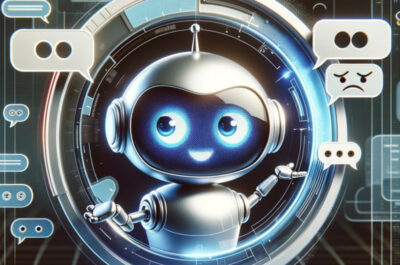Ich habe im Rahmen der NEXT12, die Co-Gründerin und Direktorin von MindGames, Deepa Iyengar, einmal zu dem Projekt interviewt. MindGames hat die ersten gedanken-kontrollierten iPhone- und iPad-Spiele wie z.B. 28 Spoons Later und W.I.L.D entwickelt. Wie die Spielhandhabung funktioniert und wie die Idee zu dem Projekt entstanden ist, erzählt uns Deepa in diesem Gespräch, welches wir heute einmal im Originalton in englischer Sprache veröffentlichen.
So, Deepa, you tell me a little bit about your background in
cognitive neuroscience and how MindGames started.
Well, I took a masters degree some years back at MIT in their
brain and cognitive sciences department. That’s a good department if
you have a wide interest in the area because they’ve got people all
the way from psychology to going into monkey’s brains. My field was
cognitive neuroscience, which is interdisciplinary. But what I worked
on was habit learning and trying to understand how habit learning
works in the brains of rats. Not how the learning process works, but
where is the brain activity that has correlates with habit learning.
How did MindGames start?
 Well after MIT I went to art school (laughing) for a little
Well after MIT I went to art school (laughing) for a little
while. I think that might have something to do with it. About three
years back I first heard about these kind of technologies that were
becoming commercial for ordinary people and these brain-controlling
technologies. And it was really just a vision that happened. I
thought, well, I’d really love to play a video game, maybe like Myst
or something, but where I have to solve some of the puzzles say by
relaxing to open up a new path or something. And that’s really how I
got the idea. It just came in sort of a vision after hearing about
this technology. Then when I looked back I said, ok, but the idea of
playing a game to learn something is about trying to learn a habit in
a fun. And maybe that really connects back to school.
So you produce games for mobile platforms at MindGames. How
do they work?
I should be clear, so far we’ve only done iPhone, we haven’t
done Android yet. But do you want to know how you are able to control
the game with your mind?
yes
The brain cells work electrically, so what we are recording is
the sum of that activity from one point in the skull. So that is not
at all very detailed information. It’s like if you think about each
brain cell like a drop of water, the sum is a pool of water. So
definitely drops of water have influence on the pool, but it’s not
like you see each drop separately if that makes sense. But luckily
because the technology is so old – since 1920, the EEG technology,
there have been people working on it since then, so they’ve learned to
parse the electric field to some extent. It measures the brain wave
activity and different patterns corollate to different brain states.
That information is the kind of stuff we take advantage of in our
games. I think you’ll see an explosion of learning about how we can
get information from the electric field about what we are thinking and
so on. You’re going to see people trying really hard to learn a lot
more about it really fast now that there seems to be a kind of a push
to make it a consumer technology.
The idea behind it is that you are training your brain –
maybe training yourself to concentrate better. How does that process
work? That habit learning process? Are people aware, are they
conscious of the process?
No, actually. That’s a great question. So habit learning, the
mechanism of habit learning is a completely different mechanism in the
brain from the mechanism of learning, say history maybe … I can
teach you history at least to some extent – a great extent, by
lecturing or having conversations with you about history and telling
you, declaring to you. It’s called declarative learning. And then
habit learning. There are other words for it – one is procedural
learning, so if you want to learn to ride a bike I guess I could tell
you to sit on the bike and try to go forward and you’ll fall off
(laughing). That’s all I can tell you. Music is another example. Yeah,
OK it’s declarative to the extent that there are some notes on the
page and I can hand you the notes and I can say go practice piano with
this if you already know which note is which button. However, you
won’t really learn it unless you practice it. That’s procedural
learning. You have to do it. So we discovered this around 1950. There
was this poor guy who was having really bad seizures in his temporal
lob which has to do with declarative memory as it turns out – they
didn’t really know that then. He passed away a few years ago. He’s
become known as HM in psychology literature and what they learned from
HM was a lot of things about memory. But one of the things they
learned was that after the surgery where they took out his temporal
lob, he wasn’t able to form any new memories. He only had his only
memories. I met him once and the thing is as long as his attention is
on one topic or something, he’s fine. I mean, I didn’t test the limits
of it. Maybe he wouldn’t be fine for a half an hour or an hour, but
at least for a few minutes. But if his attention goes to something
else, he’s completely forgotten everything. It just doesn’t go into
his long term memory. On the other hand, they found that he was able
to learn procedural learning tasks like tracing a shape without really
being able to see it. What would happen is that every time they would
bring him to do it, they would ask him: „have you ever done this
before?“. And he would say „no, I’ve never heard of this before. I’ve
never done this before.“ But they could measure that he was getting
better and better each time, so in other words his ability to form
declarative memories was gone, but his ability to form procedural
memory and do habit learning was undamaged.
So they realised it was two different processes?
Yes, two completely different processes, so the point though is
with habit learning you’re not really aware of it. I mean you know
you’re practicing, but you can’t be like now I’m doing this in order
for this to happen.
And that’s the idea behind 28 Spoons Later, for instance, one of
the games you’ve developed? You’re practicing concentrating by bending
the spoons with your mind so the gentleman Zombie won’t be able to eat
your brains.
Yes, exactly, but you see the thing is, practicing is boring.
Usually anyway, you have to have some feeling of short term reward. So
with a bike it’s hard to remember. We all learn it when we are kids.
But with a bike you are falling off, which is not fun, but I assume we
keep doing it because we see other kids riding bikes around and it
looks fun and least there’s maybe not so much short time, but at least
we can see what the end looks like. With something like learning to
concentrate or learning to relax and maybe learning how to get into
the flow of creation, wouldn’t that be great? When you want to, it’s
not like that. Let’s say if I meditated or something, if I meditate,
then I will be able to relax when I need to or learn to relax when I
need to, but you don’t really have a good sense of what that outcome
looks like or feels like. It would be like trying to learn to ride a
bike without seeing … where the bike is invisible and you can’t see
any examples of success in front of you. So then, there’s really just
no reward, no short-term reward, because sitting and meditating and
failing to meditate is no fun, I can tell you (laughing) and you also
have no clear vision of the outcome. Here you still might not have any
clear vision of the outcome, but what you do have is hopefully, it’s
fun to try to bend the spoons to defeat the zombie.
So, it sounds like it really uses the ideas of mindfulness.
Very much, yes. Very much. I think if I could talk about the really
big, hairy vision of MindGames, it would be mainstreaming mindfulness
practices because there are so many ways which would benefit
individuals and therefore society.
How do you see the applications of this moving forward? You
mentioned in your Next12 presentation of using this with people or
children with Attention Deficit Disorder. Are you working on that?
Yeah, so I mean our hypothesis is that if you have a kid who has
ADHD, it seems like it would help them. I have no great clinical
knowledge of ADHD, but it seems like it would help them with relaxing
and focusing. So that’s our idea, that at least for some kids it could
work. It would be great to talk about replacing Ritalin but I wouldn’t
go that far, especially because we haven’t proven anything yet. But at
least for some kids, if this could supplement Ritalin or replace it,
for kids who don’t have a huge problem, we think that would be great.
Basically replace medicine with a fun way to train, so that when they
are in school or whatever the moment is and they need to do something
and they need to regulate their attention, they’ll do it. We’ve tried
this out at exhibitions and things with a couple of hundred kids and
there are always kids who have ADHD, who come to us and immediately
start asking will this work for me? They are almost the easiest people
to explain it to. They explain it to me. If I could have something
like this to practice calming down and focusing then my life would be
so much better. They’ll go into detail about. But I have to emphasise
there is still a way to go, for example, we’re using for the headset a
solution that is built by someone else that might be fine. But we are
also using functions that they define and we don’t know what’s in
there, because it’s their trade secret. I can guess but I wouldn’t
know for sure. So a necessary step in developing therapuetic games
would be to make our own recipes or least work with someone who makes
the recipes for what combination of brainwaves means relaxation and
what means concentration in a way that will be relevant to children.
Because the problem is these words are so big – meditation,
relaxation, concentration, attention – you can have two pretty
different states and call them both relaxation.
Yes, I mean, that’s quite a simple headset. It measure brainwaves
at one point of the brain. Are there other headsets out there that
might give you more data or be more useful?
There might be but the downside is there always more difficult to
put on, so that’s why I was talking about that we are going to need to
develop headsets with fewer sensors, because even the one we use is
hard enough to put on. It’s not going to be a good therapy if the kid
has to sit for half an hour and mess around with it. A kid without
ADHD wouldn’t want to do that. How much worse for a kid with ADHD?
How did you go through the process of developing the games
themselves? Did you work with a developer or a team?
We basically have a small team and really good designers. One guy
for example who does graphic design, animation and sound, which
normally you would need three different people to do. It’s pretty
amazing. Because we are a small company still we can’t have a
dedicated game designer, so that means the game design is usually a
collaboration between the graphic designers and programmer and
sometimes mean. For example, with the spoon game, we made an earlier
game where one level had to do with bending a spoon and people seemed
to really feel that level. Then we decided to make a game around
bending spoons. We said sure, but it helps if there is a bit of a
story – why are you bending the spoons. In that case it was the
programmer who came up with the game story and the title and also the
difficult curve of how the spoons get more difficult to bend. The game
design is really a collaborative effort.
The apps are available … ?
On the app store. You can go to our site. Our site links to both
the app store and to the headset company’s site. We’ve made three
games. One of which we took off the app store earlier this year
because of some technical issues with another company who was working
with us on the game. With all the games because we want to know what’s
fun and for whom, we’ve made our games pretty small productions. I’d
like to think small but complete productions, but we’d like to make
bigger and much longer games.
What other games do you envisage? Could you imagine maybe platform games?
Actually our first game idea was a platform game, which we would
like to come back to some day. It was about a little creature who
wakes up one morning and all the other little creatures like him have
disappeared, so he goes on a quest to find out what happened to them.
He communicates telepathically and he also has telekinetic powers, so
the idea is that as he is going on his quest there are these things
that he needs to do like get something out of a tree and he can do
that by relaxing to float it out of the tree or something like that.
There you have the same two controls relaxing and concentrating but
because it’s a narrative platform game you are always doing something
different with the same controls. But also people tend to forget that
the earliest video games had few controls. It wasn’t like I need to
have sixteen controls. You’d have to be a pretty hardcore gamer to
master 16 different mind controls. (laughing) It’s more playable for
more people with fewer controls but also better for learning.
Thanks, Deepa!
You’re welcome.
Artikel per E-Mail verschicken
Schlagwörter: Deepa Iyengar, Interview, iPad, iphone, Minded-controlled, MindGames



